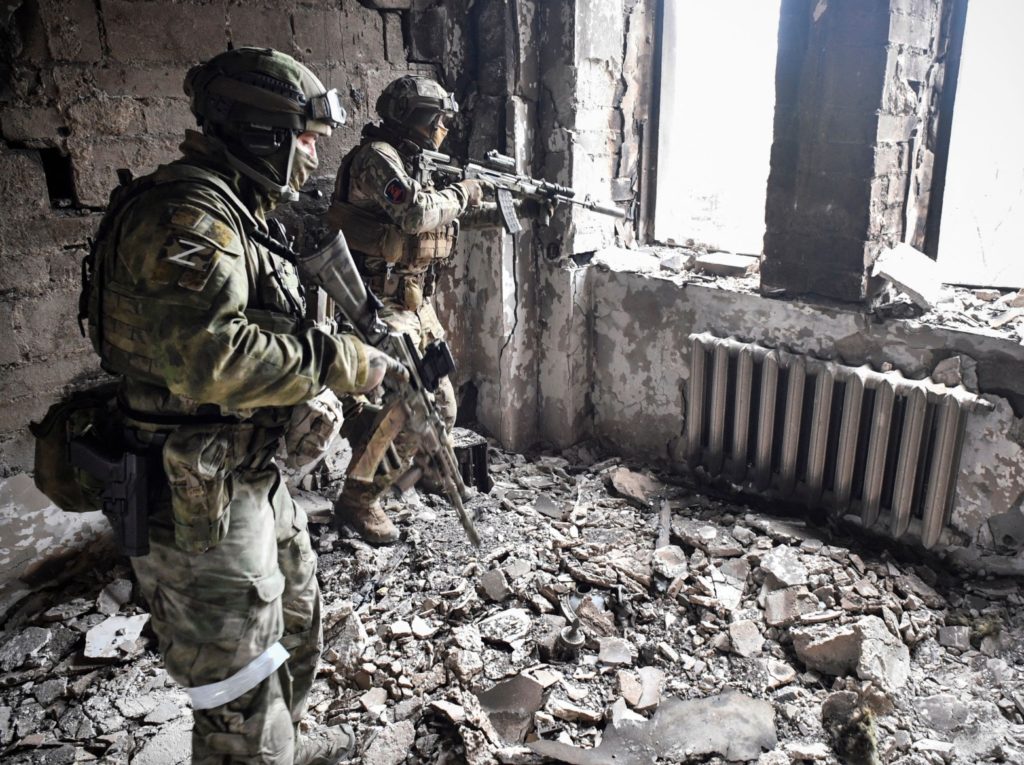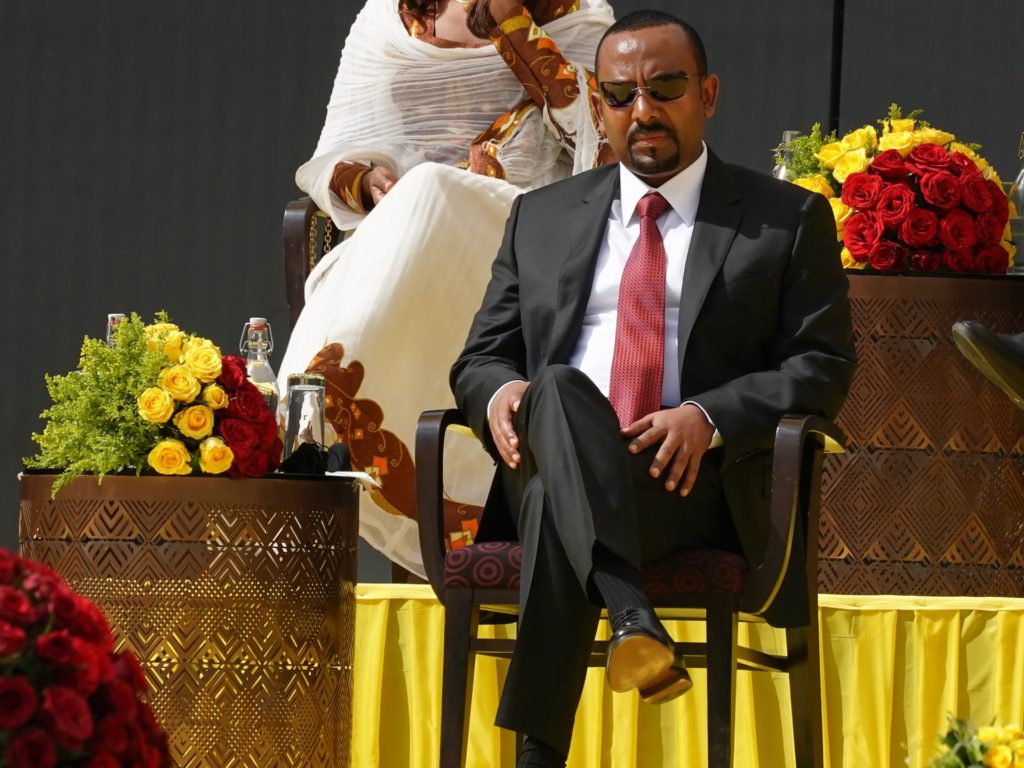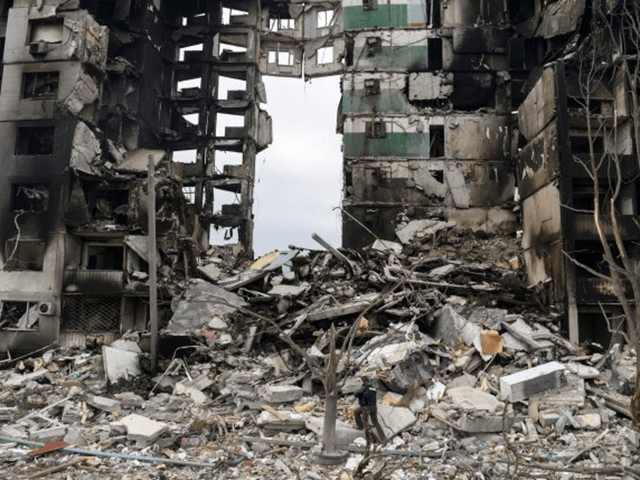The Russian Embassy in Ethiopia’s official Twitter page issued a statement Tuesday thanking Ethiopia’s government and its citizens for their “solidarity and support” of Russia’s latest war with Ukraine.
The April 19 press release read:
Since the beginning of the Special military operation of the Armed Forces of the Russian Federation on protection of the people of Donbass, denazification and demilitarization of Ukraine with the aim to ensure national security of the Russian Federation, the Embassy has been receiving by emails and in-person visits from the citizens of Ethiopia expressions of their solidarity and support for the Russian Federation.
Continuing, the embassy expressed gratitude toward Ethiopia’s federal government for its recent “support” of Russia “at the United Nations [U.N.] during voting on Ukraine-related resolutions.”
Russia launched a war with neighboring Ukraine on February 24. The action occurred three days after the Kremlin declared its intentions to formally recognize the independence of two Russian-backed breakaway states in eastern Ukraine’s Donbas region known as the Donetsk and Luhansk People’s Republics (DPR and LPR).

Two Russian soldiers patrol in the Mariupol drama theatre, bombed last March 16, in Mariupol on April 12, 2022, as Russian troops intensify a campaign to take the strategic port city. (ALEXANDER NEMENOV/AFP via Getty Images)
Ethiopian Prime Minister Abiy Ahmed on March 3 called on all parties involved in the Russia-Ukraine war “to exercise maximum caution in engagement and refrain from further exacerbating a sensitive situation,” Kenya’s the East African newspaper reported.

Prime Minister Abiy Ahmed attends an inaugural celebration after Amhed was sworn in for a second five year term as Prime Minister of Ethiopia on October 04, 2021 in Addis Ababa, Ethiopia. (Jemal Countess/Getty Images)
The publication noted Abiy’s remark came one day after Ethiopia’s representative at the U.N. General Assembly “missed a crucial vote … where representatives had gathered to vote on a resolution on the Russian invasion in Ukraine.”
“A total of 141 countries voted in favour of the UN resolution while five countries—Russia, North Korea Belarus, Syria, and Eritrea—voted against the resolution deploring Russia’s aggression against Ukraine,” the East African relayed, adding, “35 other countries, mainly from Africa, abstained from the voting.”
Ethiopia was among 13 nations that did not attend the U.N. General Assembly session on March 2.
Ethiopia’s federal government is currently involved in a civil war with a separatist militia from Ethiopia’s northern region of Tigray called the Tigray People’s Liberation Front (TPLF). The conflict launched in November 2020 after forces allied with the TPLF attacked a federally-administered military base in Tigray. The conflict has displaced thousands of Ethiopians within the affected region and spurred others to flee to neighboring countries, such as Sudan. The U.N. has accused the Ethiopian government of failing to disperse humanitarian aid to people in need during the war and claims this has contributed to mass starvation in Tigray and neighboring regions. Addis Ababa denies the allegation and has repeatedly blamed incessant attacks on its forces by the TPLF for its inability to secure aid deliveries.
The humanitarian crisis caused by Ethiopia’s civil war has spurred many human rights organizations and news agencies to accuse both Addis Ababa and the TPLF of perpetrating or attempting to perpetrate “ethnic cleansing” of people on either side of the conflict. Amnesty International and Human Rights Watch (HRW) published a joint report on April 6 in which they alleged Ethiopia’s federal government has carried out “ethnic cleansing … crimes against humanity and war crimes” in Tigray since November 2020. Reuters published a report in December 2021 in which it accused the TPLF of committing war crimes against Ethiopian and other civilians. The TPLF’s alleged crimes included gang rapes and “the massacre of more than 200 ethnic Amharas in the town of Mai Kadra, and the killing of many Eritrean refugees in the far northwest.”
Ethiopian Prime Minister Abiy Ahmed has led his government in its civil war against the TPLF, at times personally on the battlefield. Ethiopia’s state-run Fana Broadcasting Corporate S.C. (FBC) in November 2021 reported that Abiy was then “leading the Ethiopian National Defense Forces from the frontline.” The news shocked some observers, as Abiy had previously built his political reputation on the image of peace. Abiy won the 2018 Nobel Peace Prize for helping to end a war between Ethiopia and Eritrea.

COMMENTS
Please let us know if you're having issues with commenting.